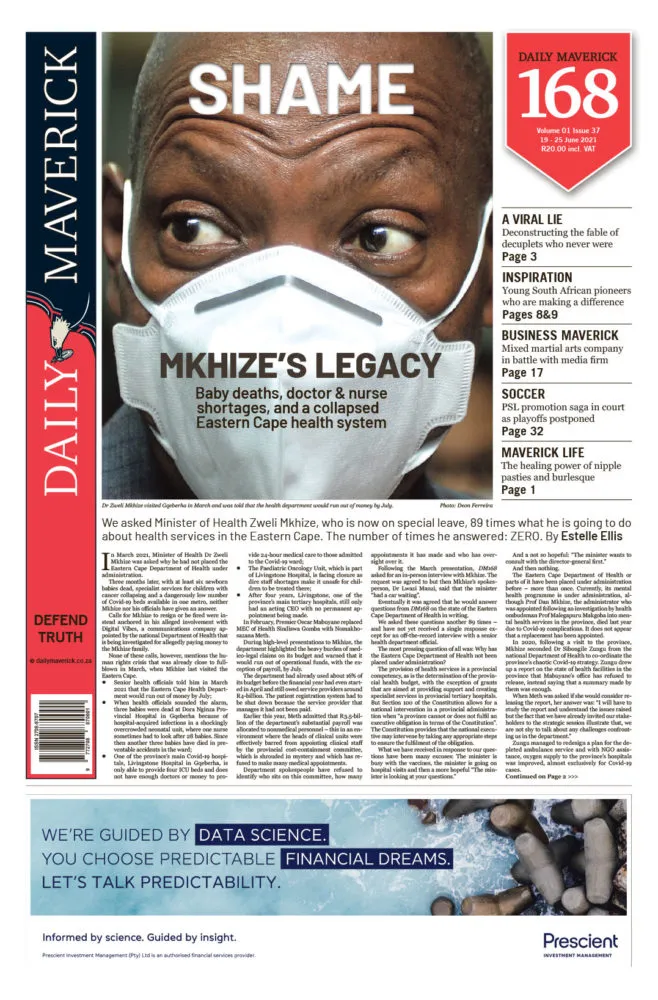First published in the Daily Maverick 168 weekly newspaper.
“Ground-breaking”, “seismic” and “unprecedented” were the words bused to describe this “historic achievement”. After a decade of talks on this complex yet crucial issue, it is indeed a bold plan and a step in the right direction. It has two “pillars” worth noting.
First, global companies should simply pay tax in the countries where they make their profits. For example, it is common for multinationals like Apple or Amazon to book all the profits they make in Europe in Luxembourg or Ireland, where corporate tax rates are much lower than in the countries where they make most of their profits.
The second pillar is, in principle, equally straightforward. All countries should have a fixed minimum corporate tax rate of 15% to prevent the current situation of a “race to the bottom” as countries compete to offer low tax rates to lure businesses and generate revenue. Countries will be allowed to have higher rates, like France at 20%, but those that currently have lower rates like Ireland at 12.5% will be forced to hike them.
What will this mean in practice?
First, the actual amounts are unclear. Some big numbers are doing the rounds, with the Paris-based OECD calculating that EU multinationals would face payments of around €50-billion, or 15%. US multinationals like Amazon could be hit even harder. Such shifts will have to be factored into investors’ corporate profit forecasts, especially for those businesses that benefited disproportionally from the Trump-era corporate tax cuts.
Second, the tax plan should be seen as a grand compromise. In exchange for allowing greater taxation of multinationals by other countries, Washington will get a widely applied global minimum tax rate, which would help President Joe Biden’s substantial fiscal funding requirements. The US could maintain a relatively high corporate tax rate without being undercut by other countries. The UK, Italy and France have agreed to drop their high digital taxes on US tech companies and in return the US will quietly abandon its threats of slapping tariffs on EU imports.
The key takeaway is the most obvious: after years of Trumpian unilateralism, multilateralism is back. The Financial Times reported that some ministers privately said the urge to announce the deal at the G7 was to show rich countries still mattered – and that the 21st century was not going to be dominated by rules set by China.
Third, the treaty is significant but far from decisive. It’s preliminary: the G7 finance ministers still have to present these plans at the G20 meeting of finance ministers in Venice in July, and after that it will go to the OECD for ratification and to other countries, such as SA, to thrash out the practicalities.
Expect the scheme to face resistance from Republicans in Congress and the Senate. President Biden should recall his predecessor Woodrow Wilson’s scuppered attempts to get the Treaty of Versailles backed by the US Senate and Congress, which ultimately led to his downfall. Should Biden lose his majority in either house in the 2022 mid-term elections, he may find it impossible to sanction the treaty. In addition, the UK and the EU have recommended “carve-outs” for financial services, who will not be obliged to pay tax in the countries where they make their profits.
As with everything tax-related, the devil is in the detail and it will take years, if not decades, for such a scheme to be implemented. Even then, one should expect loopholes for tax lawyers and advisers to exploit. A healthy dose of cynicism is prudent. DM168
This story first appeared in our weekly Daily Maverick 168 newspaper which is available for free to Pick n Pay Smart Shoppers at these Pick n Pay stores.


















 Become an Insider
Become an Insider
Comments - Please login in order to comment.